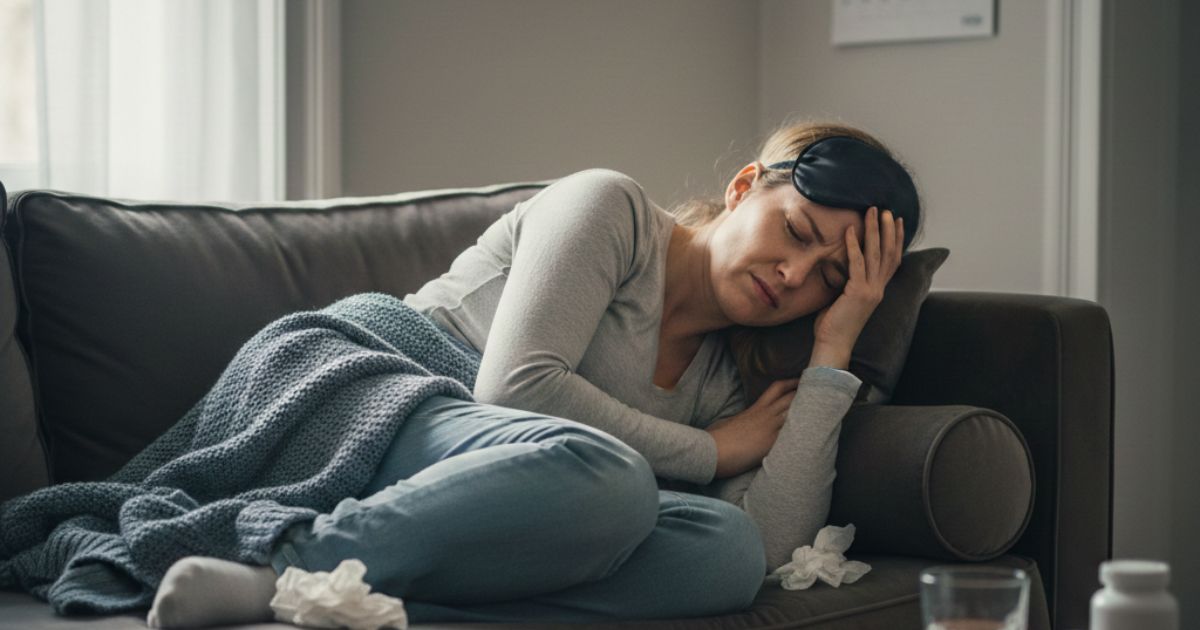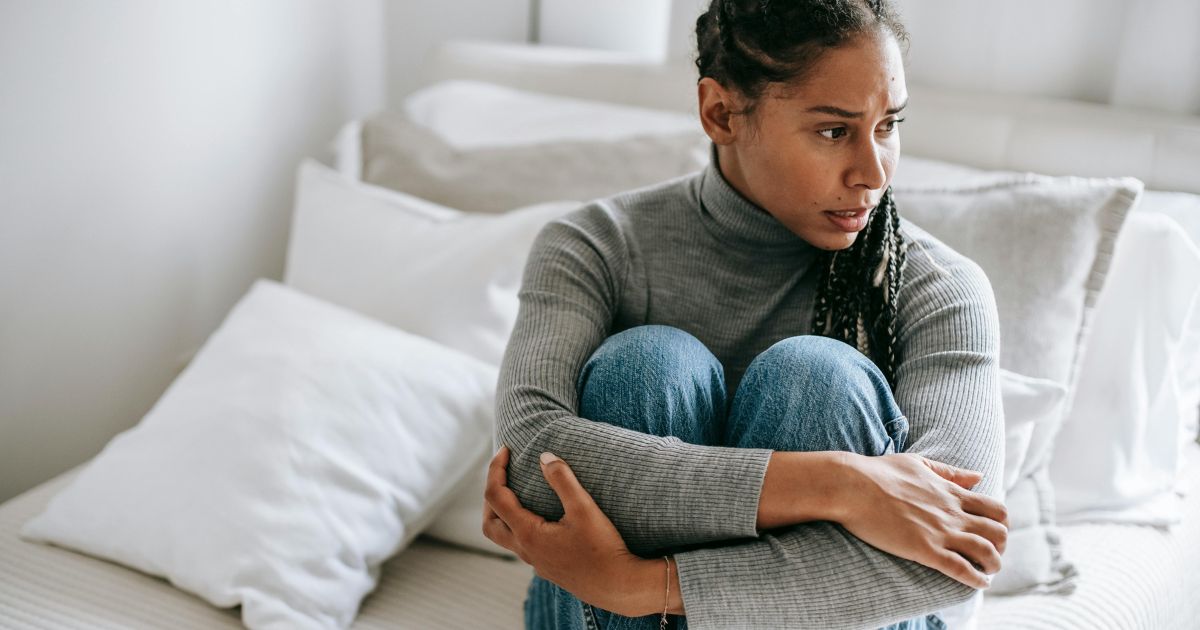About 60–70% of perimenopausal women experience symptoms such as headaches, hot flashes, mood swings, depression, decreased libido, and sleep disturbances. Headaches during perimenopause and menopause are very common, yet rarely talked about. Many women ask, “Can menopause cause headaches?”— and the short answer is yes. Shifting hormones, especially lower levels of estrogen and progesterone, can create the perfect environment for …
Extreme Fatigue in Perimenopause: What’s Really Going On—And What Helps?
Perimenopause fatigue is a hormone-driven exhaustion caused by fluctuating estrogen and progesterone, disrupted cortisol patterns, and poor sleep quality. During perimenopause, hormonal changes can turn your once-reliable energy levels into an unpredictable rollercoaster. And the cause isn’t just getting older, nor is the solution simply needing more sleep. To help cope with this type of exhaustion, you have to address …
Supplements for Menopause Belly Fat
Struggling with stubborn belly fat during perimenopause or menopause? You’re not alone. Even active, health-conscious women notice their waistline changing as hormones shift. Estrogen decline, cortisol spikes, and insulin resistance make it easier to store fat around the middle and harder to burn it off. The good news? Specific supplements for menopause belly fat can help with changing hormones, support …
Perimenopause Brain Fog: Causes, Symptoms, and Treatment Options
Perimenopause and menopause aren’t just about hot flashes and irregular periods. For many women, the most frustrating symptom isn’t even physical; it’s mental. Words escape you mid-sentence, concentration slips away, and your once-sharp memory feels sluggish. These are all examples of what perimenopause brain fog feels like. They’re among the most common (yet least discussed) cognitive changes to occur1 during …
Menopause Fatigue Solved: Proven Ways to Reclaim Energy, Focus, and Vitality
We often think of menopause as a hormone story, and it certainly is. But there’s another side of the equation that gets far less attention: your mitochondria, and more specifically, how they change as you enter perimenopause and get older. Mitochondria, which are tiny “energy factories” inside your cells, are intricately connected to hormone production, brain function, metabolic health, and …
Heavy Periods in Perimenopause: Causes, Clots, and How to Stop Heavy Bleeding
Heavy periods in perimenopause are one of the most common (and frustrating) symptoms women face in their 40s and 50s. If you’ve noticed heavier bleeding, large clots, or sudden flooding during your period, you’re not alone. Perimenopause is a time of major hormonal shifts, and for many women, one of the most noticeable (and disruptive) changes is to their periods1, …
Perimenopause Anxiety Disorder: Can Unbalanced Hormones Like Progesterone Cause Anxiety?
Hormonal changes during midlife, including perimenopause and menopause, usually cause more than just hot flashes and irregular cycles. For many women, this time can trigger what feels like a perimenopause anxiety disorder—sudden waves of worry, restless nights, and emotional unease. At least 40% to 50% of perimenopausal women1 report dealing with mental health challenges, such as mood swings and insomnia, …
Menopause and Autoimmune Disease in Women: Symptoms, Flare-Ups, and What Your Doctor Isn’t Telling You
If you’re a woman navigating both menopause and an autoimmune disease at the same time, you might have noticed your symptoms shifting in ways your doctor didn’t fully prepare you for. For example, unpredictable flare-ups, stubborn signs of inflammation, and hormonal chaos can all occur during this transitional phase and can feel like a storm no one warned you about. …
When to Take Progesterone for Perimenopause
If you’re in your late 30s or 40s and feeling like your body and mood are shifting, you’re not imagining things. Perimenopause can be a confusing time—one that causes a lot of shifts in how you feel, even when your labs seem “normal.” And the question of when to take progesterone for perimenopause is a common one many women are …








